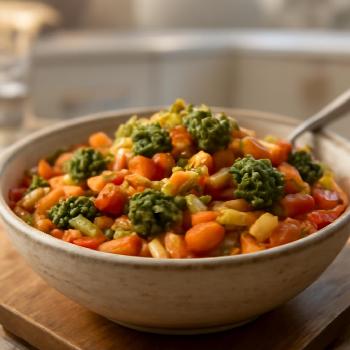Cooking Tips > Meal Planning > Weekly Meal Prep > What meals are great for batch cooking?
What meals are great for batch cooking?
Batch cooking is a fantastic strategy for saving time and ensuring healthy meals are available throughout the week. This tutorial explores the best types of meals for batch cooking, offering practical tips and recipe ideas to streamline your meal prep process and make healthy eating easier.

Understanding Batch Cooking Principles
Batch cooking involves preparing large quantities of food at one time to be eaten over several days or even weeks. The key is to choose recipes that reheat well and maintain their flavor and texture. Think about dishes where the flavors often improve over time, like stews and curries. Also, consider the storage aspect; how easily can the dish be divided into individual portions and stored in the fridge or freezer?
Soups and Stews: A Batch Cooking Staple
Soups and stews are arguably the easiest and most rewarding meals for batch cooking. They are forgiving recipes, often tasting better the next day as the flavors meld together. Consider making a large pot of hearty vegetable soup, lentil soup, chicken noodle soup, or chili. Store individual portions in airtight containers in the refrigerator for up to 4 days or freeze for longer storage.
Casseroles: Comfort Food Made Easy
Casseroles are another excellent choice for batch cooking. They're simple to assemble and can be easily reheated. Lasagna, shepherd's pie, and mac and cheese are classic examples. You can also get creative with vegetable-based casseroles like broccoli and cheese or ratatouille. After baking, allow the casserole to cool slightly before portioning and storing. Freezing casseroles is also an option, just be sure to thaw them completely before reheating.
Grain Bowls: Customizable and Convenient
Grain bowls are versatile and perfect for customizing to your dietary needs and preferences. Cook a large batch of grains like quinoa, brown rice, or farro. Then, prepare a variety of toppings such as roasted vegetables, grilled chicken or tofu, beans, and flavorful sauces. Store the grains and toppings separately and assemble your bowls as needed throughout the week. This prevents ingredients from becoming soggy and allows for flexibility in meal planning.
Curries and Stir-Fries: Flavorful and Filling
Curries and stir-fries are another batch cooking winner. The sauce-based nature of curries allows for flavors to deepen over time. Prepare a large pot of chicken curry, vegetable curry, or lentil curry. Stir-fries can be partially prepped by chopping vegetables and marinating protein ahead of time. Store the curry or stir-fry ingredients separately to maintain texture and prevent sogginess.
Pasta Dishes: Simple and Satisfying
Pasta dishes are great for batch cooking, but it's important to avoid overcooking the pasta initially. Cook the pasta al dente and store it separately from the sauce. When reheating, add the pasta to the sauce to finish cooking and prevent it from becoming mushy. Bolognese, pesto pasta, and creamy tomato pasta are all excellent options. Be mindful of sauces that separate upon reheating (cream-based sauces), these might be better eaten within a few days.
Tips for Successful Batch Cooking
FAQ
-
How long can I store batch-cooked meals in the refrigerator?
Generally, cooked meals can be safely stored in the refrigerator for up to 3-4 days. Always check for signs of spoilage before consuming. -
Can I freeze batch-cooked meals?
Yes, most batch-cooked meals can be frozen for up to 2-3 months. Be sure to use freezer-safe containers and label them with the date. -
What are the best containers for batch cooking?
Airtight containers made of glass or plastic are ideal. Glass containers are great for reheating in the microwave, while plastic containers are lighter and more durable. -
How do I prevent pasta from becoming mushy when batch cooking?
Cook the pasta al dente and store it separately from the sauce. When reheating, add the pasta to the sauce to finish cooking.
